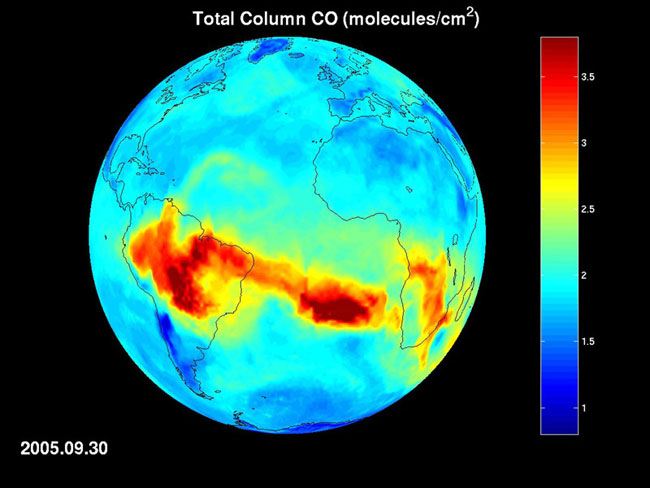Complex Climate Bill May Freeze Your Web Browser

Get the world’s most fascinating discoveries delivered straight to your inbox.
You are now subscribed
Your newsletter sign-up was successful
Want to add more newsletters?

Delivered Daily
Daily Newsletter
Sign up for the latest discoveries, groundbreaking research and fascinating breakthroughs that impact you and the wider world direct to your inbox.

Once a week
Life's Little Mysteries
Feed your curiosity with an exclusive mystery every week, solved with science and delivered direct to your inbox before it's seen anywhere else.

Once a week
How It Works
Sign up to our free science & technology newsletter for your weekly fix of fascinating articles, quick quizzes, amazing images, and more

Delivered daily
Space.com Newsletter
Breaking space news, the latest updates on rocket launches, skywatching events and more!

Once a month
Watch This Space
Sign up to our monthly entertainment newsletter to keep up with all our coverage of the latest sci-fi and space movies, tv shows, games and books.

Once a week
Night Sky This Week
Discover this week's must-see night sky events, moon phases, and stunning astrophotos. Sign up for our skywatching newsletter and explore the universe with us!
Join the club
Get full access to premium articles, exclusive features and a growing list of member rewards.
The House might vote Friday on a climate bill that has generated arguments from more sides than there are political parties. It's nearly impossible for the average person — and likely the average politician — to know what this bill might or might not do.
The bill is sweeping in its change, ambitious in its scope, and therefore an easy target for loud and obfuscating arguments that easily distract from the goal: to reduce pollution and greenhouse gas emissions and embrace alternative energies.
And don't count on any media outlet for the full picture. A scan of several major reporting outlets reveals none covered all the angles on this one in any one story.
So, you can find all the nasty quotes elsewhere. Here's a little summary of what might be facts ...
(The bill is H.R. 2454: American Clean Energy and Security Act of 2009. Here's the bill and here's a summary. NOTE, however, this warning from your government: "This bill is very large, and loading it may cause your web browser to perform sluggishly, or even freeze." I kid you not.)
What is it?
Among the aims of the bill: "To establish a combined efficiency and renewable electricity standard that requires utilities to supply an increasing percentage of their demand from a combination of energy efficiency savings and renewable energy (6% in 2012, 9.5% in 2014, 13% in 2016, 16.5% in 2018, and 20% in 2021-2039).
Get the world’s most fascinating discoveries delivered straight to your inbox.
It also calls for a national strategy for carbon capture and sequestration and the development of an electric vehicle infrastructure (the equivalent of gas stations on every corner).
According to The Wall Street Journal: "The bill aims to cap greenhouse-gas emissions at 17% of 2005 levels by 2020 and at roughly 80% by 2050, creating a market for companies to buy and sell the right to emit carbon dioxide and other gases. It also mandates a new renewable electricity standard and establishes new national building codes."
As one example of the disagreements, Democrats representing farm states are concerned that the Democrat-sponsored bill will cost their constituents.
So to move the bill along, a farmer-supported deal was reached that "puts USDA in charge of programs that would pay farmers and other landowners to conduct the environmentally friendly projects," according to The New York Times.
One word
Another key deal changed one word, Politico reports. "Congress defined which coal-fired power plants would be covered by new greenhouse emissions standards and which would be grandfathered outside them," the web site explained. The change: Only a handful of plants would have been exempt, those that were "finally" permitted. The new wording exempts about 100 plants in various stages of the permit process — that is, those that are "initially" permitted.
The non-partisan Congressional Budget Office estimates the bill would cost the average U.S. household $175 a year by 2020, The Washington Post reports. Republicans have been saying it'd cost a lot more.
You might not have heard yesterday — because it was overshadowed by things like health care, war, war, the prospect of war, and the prospect of war — but the White House scrambled its talking troops in an effort to generate public support for the bill.
Among the bill's supporters was, of course, President Obama, who called it "historic," Reuters reports. That, of course, remains to be voted upon.
In The Water Cooler, Imaginova's Editorial Director Robert Roy Britt looks at what people are talking about in the world of science and beyond. Find more in the archives and on Twitter.
Robert is an independent health and science journalist and writer based in Phoenix, Arizona. He is a former editor-in-chief of Live Science with over 20 years of experience as a reporter and editor. He has worked on websites such as Space.com and Tom's Guide, and is a contributor on Medium, covering how we age and how to optimize the mind and body through time. He has a journalism degree from Humboldt State University in California.
 Live Science Plus
Live Science Plus











